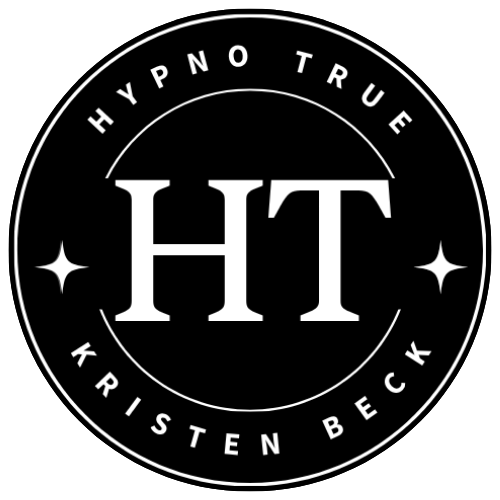Hypnotherapy vs Talk Therapy: Which Is More Effective?
Mental and emotional struggles like anxiety, phobias, depression, trauma, and habits like smoking or overeating often lead people to seek therapy. Two of the most widely used approaches are traditional talk therapy (such as cognitive behavioral therapy or CBT) and hypnotherapy. But how do they compare when it comes to real results?
In this post, we’ll break down the key differences, success rates, and what the research says so you can make an informed decision about which path might work best for you.
What Is Talk Therapy?
Talk therapy is a general term for therapies like CBT, psychotherapy, and counseling. It involves speaking with a trained therapist to explore your thoughts, feelings, and behaviors. The goal is often to gain insight, develop coping strategies, and build new behavioral habits over time.
Talk therapy is widely practiced and backed by decades of research. It works for many people—but progress can sometimes feel slow, especially when working through deeply rooted subconscious patterns.
What Is Hypnotherapy?
Hypnotherapy uses guided hypnosis to access the subconscious mind—the part of the mind where automatic beliefs and behaviors are stored. In a deeply relaxed and focused state, clients are more open to suggestions that help them release negative thought loops, reframe past events, and rewire limiting beliefs.
Rather than just talking through issues, hypnotherapy aims to go straight to the source of the problem and reprogram it at its root.
Success Rates: Hypnotherapy vs Talk Therapy
Here’s what the data says when comparing these two approaches:
Alfred Barrios Study (1970)
Dr. Alfred Barrios analyzed multiple studies and found the following success rates for various therapeutic approaches:
- Hypnotherapy: 93% success rate after 6 sessions
- Behavior Therapy: 72% success rate after 22 sessions
- Psychoanalysis (talk therapy): 38% success rate after 600 sessions [1]
These results highlight not only the effectiveness of hypnotherapy, but also the speed at which it can work compared to traditional therapy.
Clinical Trials Comparing Hypnotherapy and CBT
Depression
In a 2021 randomized controlled trial published in the Journal of Affective Disorders, researchers compared the effectiveness of hypnotherapy with cognitive behavioral therapy (CBT) for treating mild to moderate depression. The results?
- Hypnotherapy: 44.6% response rate (defined as ≥50% symptom reduction)
- CBT: 38.5% response rate [2]
This suggests hypnotherapy was at least as effective—if not slightly more effective—than CBT for depression.
Smoking Cessation
A 2024 study published on PubMed compared hypnotherapy and CBT for smoking cessation. The results showed that both therapies had comparable 12-month abstinence rates:
- Hypnotherapy: 15.0%
- CBT: 15.6% [3]
While the success rates were similar, many participants in the hypnotherapy group reported a greater sense of ease and reduced cravings compared to those in CBT, indicating a potentially smoother experience.
Session Efficiency: How Fast Do They Work?
Hypnotherapy is often praised for getting results in fewer sessions. Because it bypasses the conscious mind and works directly with the subconscious, many clients experience noticeable changes in as little as 1 to 6 sessions.
In contrast, talk therapy typically requires 10, 20, or even 50+ sessions over a longer period, especially when dealing with trauma, anxiety, or long-term behavioral issues.
This means that for some people, hypnotherapy can be a faster and more cost-effective option.
What Hypnotherapy Can Help With
Research supports hypnotherapy’s effectiveness for a range of issues, including:
- Phobias (fear of flying, spiders, public speaking)
- Anxiety and panic attacks
- Trauma and PTSD
- Smoking cessation
- Weight loss and emotional eating
- Chronic pain management
- Insomnia
- IBS (Irritable Bowel Syndrome) [4]
In fact, the American Psychological Association has acknowledged hypnosis as a useful clinical tool for many of these conditions.
What the Experts Say
Dr. David Spiegel, a leading psychiatrist and associate chair at Stanford University School of Medicine, has spent decades researching hypnosis. He calls it “one of the most powerful non-pharmacological interventions” and argues it should be more widely used in modern medicine [5].
Dr. Michael Yapko, a clinical psychologist and expert in depression treatment, states: “Hypnosis is not a therapy in itself, but it’s a tool that, when combined with therapy, can greatly accelerate results” [6].
In other words, many top professionals agree—hypnotherapy is underutilized and often underestimated.
Is One Better Than the Other?
Both hypnotherapy and talk therapy have their strengths. The best option depends on your goals, preferences, and the nature of your issue.
Choose talk therapy if:
- You want ongoing support and deep insight over time
- You need help managing a broad or complex life situation
- You prefer a slower, conversational process
Choose hypnotherapy if:
- You want fast, focused results
- You’re dealing with a habit, fear, or emotional block
- You’ve tried talk therapy without breakthrough results
- You’re open to subconscious work and mental reprogramming
Final Thoughts
If you’ve been in talk therapy for months or years with little change, it might be time to try something different. Hypnotherapy offers a faster, more direct path to transformation by working with the part of your mind that actually runs your life—the subconscious.
Both therapies can work, but when it comes to lasting change in less time, hypnotherapy is worth serious consideration.
References
- Barrios, A. A. (1970). Hypnotherapy: A Reappraisal. Psychotherapy: Theory, Research and Practice. Data referenced in American Health Magazine (1980s).
- Fuhr K, Meisner C, Broch A, et al. (2021). Efficacy of hypnotherapy compared to cognitive behavioral therapy for mild to moderate depression. Journal of Affective Disorders, 286, 166-173.
- Batra A, Eck R, Riegel B, et al. (2024). Hypnotherapy compared to cognitive-behavioral therapy for smoking cessation in a randomized controlled trial. PubMed.
- Whorwell PJ, Prior A, Faragher EB. (1984). Controlled trial of hypnotherapy in the treatment of severe refractory irritable-bowel syndrome. The Lancet.
- Spiegel, D. (2020). “Hypnosis in Therapy.” Stanford University School of Medicine, Department of Psychiatry.
- Yapko, M. (2011). Mindfulness and Hypnosis: The Power of Suggestion to Transform Experience.





